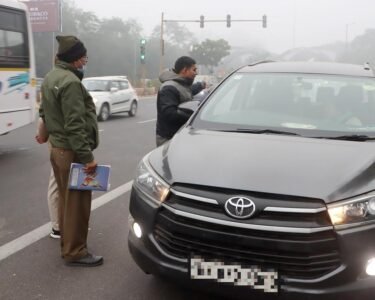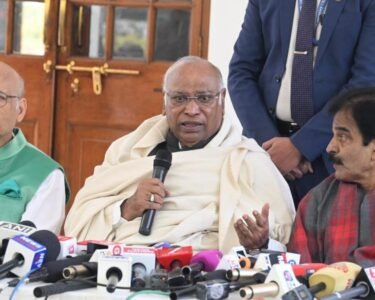In a significant development aimed at strengthening public transport in Hyderabad, the Telangana Cabinet has approved the much-anticipated Phase 2B of the Hyderabad Metro Rail project. This expansion is expected to address the growing urban congestion, improve last-mile connectivity, and boost overall mobility in the state capital.
₹33,000 Crore Allocated for Statewide Road Development
The Phase 2B expansion plan includes new corridors that will extend metro connectivity to underserved areas such as Patancheru, Kandlakoya, and the Rajiv Gandhi International Airport (RGIA) at Shamshabad. The project is designed to complement Phase 2A and ensure seamless integration with existing lines. This move is expected to reduce traffic bottlenecks and offer a more sustainable and efficient transportation system for Hyderabad’s ever-growing population.
The government has also emphasized that the metro expansion will be executed in a time-bound manner with strict quality controls, aiming to meet global infrastructure standards. The Cabinet noted that Hyderabad’s metro is already among the top metro networks in India in terms of ridership and operational efficiency, and this phase will further reinforce its capacity and outreach.
Another major highlight from the Telangana Cabinet meeting is the massive ₹33,000 crore allocation for road infrastructure development across the state. The funds will be used to construct new roads, widen existing highways, repair damaged rural roads, and develop strategic ring roads and bypass routes in key districts.
This decision comes at a time when Telangana is witnessing rapid urbanization and economic growth. Enhanced road connectivity is expected to promote smoother movement of goods and people, particularly in remote and rural areas. The Cabinet emphasized the importance of all-weather roads to ensure agricultural products can reach markets on time and emergency services can operate unhindered.
According to state officials, this initiative will cover:
- National and State Highways upgradation
- New bypass roads for towns
- Strengthening of rural link roads
- Construction of bridges and culverts in flood-prone areas
Special focus will be given to backward districts and tribal belts to improve accessibility and integration into the mainstream economy.
Dearness Allowance (DA) Hike for Government Employees
In a welcome move for over 3.5 lakh state government employees and pensioners, the Cabinet has also approved a Dearness Allowance (DA) hike. This decision is aimed at helping employees cope with inflation and rising living costs.
The new DA rates will be implemented with retrospective effect, and arrears will be disbursed in a phased manner. The decision aligns with the government’s commitment to employee welfare and financial well-being. It is expected to cost the state exchequer an additional few thousand crores annually, but the Cabinet believes that supporting employees is critical to ensuring an efficient and motivated workforce.
This increase in DA also aligns Telangana’s rates with the latest recommendations by the Central Pay Commission, ensuring parity and fairness.
Integrated Approach to Development
Chief Minister A. Revanth Reddy, who chaired the Cabinet meeting, reiterated the government’s commitment to integrated and inclusive development. He noted that metro expansion, road development, and welfare measures like the DA hike reflect the administration’s balanced focus on infrastructure and human development.
He added, “Our aim is to make Telangana not just a leading investment destination, but also a state where the benefits of growth reach every citizen—from urban commuters to rural farmers.”
The Cabinet’s decisions are aligned with the broader development roadmap for Telangana, which emphasizes:
- Smart urban infrastructure
- Rural upliftment
- Digital governance
- Environmental sustainability
Environmental and Social Impact Assessments
Ahead of implementation, the government has announced that all major projects, including Metro Phase 2B and the ₹33,000 crore road development program, will undergo comprehensive environmental and social impact assessments. This step is to ensure minimal ecological disruption and avoid displacement without rehabilitation.
Officials stressed that local communities will be consulted and resettlement plans, if any, will be fair and transparent.
Boost to Employment and Economy
The Cabinet expects that these projects will significantly boost employment in the short term through construction jobs, and in the long term by improving infrastructure for businesses. Improved roads and public transit are anticipated to attract fresh investments, reduce logistic costs, and enhance ease of doing business in Telangana.
Conclusion: A Forward-Looking Governance Agenda
The latest Telangana Cabinet decisions send a strong message of proactive governance focused on long-term growth, urban modernization, and social welfare. The Metro Phase 2B expansion is set to transform Hyderabad’s public transit landscape, the massive road development fund will connect all corners of the state, and the DA hike reinforces the government’s commitment to its workforce.
As Telangana continues on its developmental journey, these policy moves are expected to pave the way for a more connected, equitable, and prosperous future.







